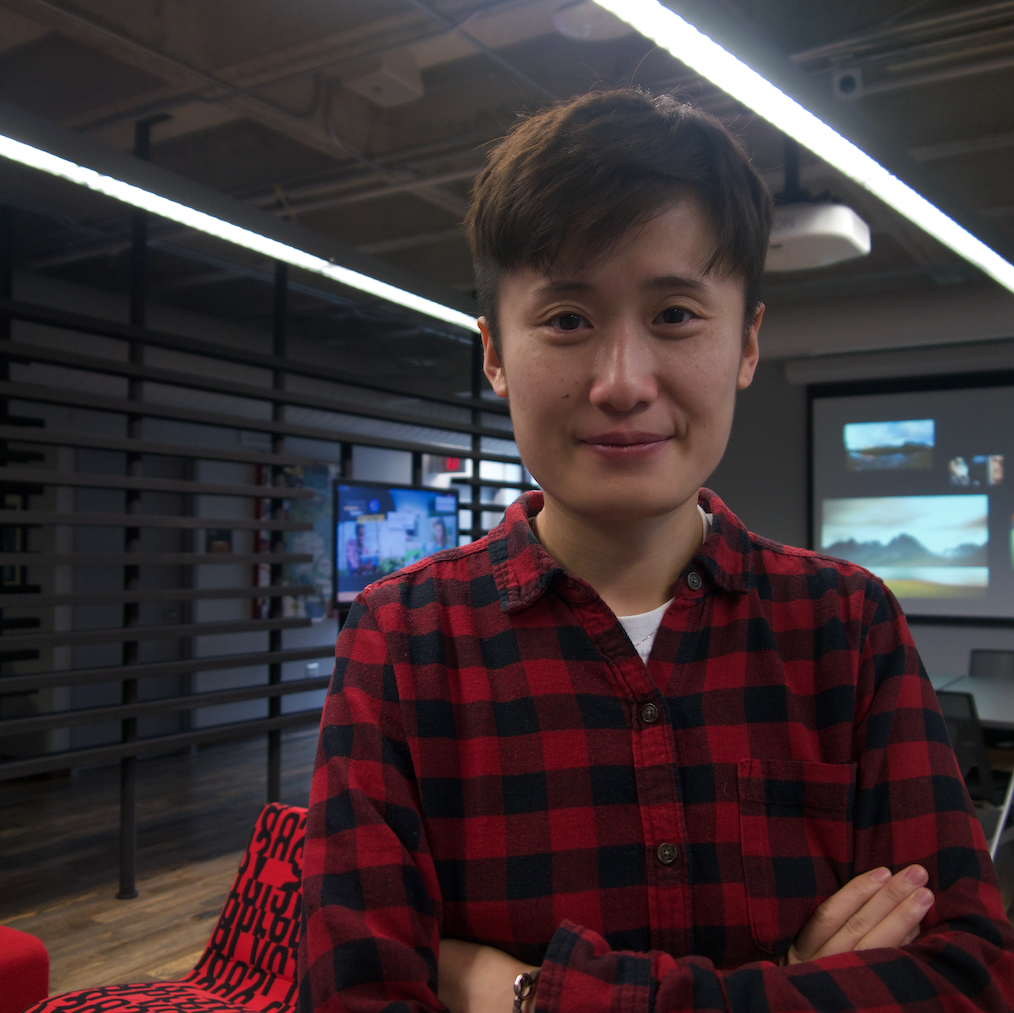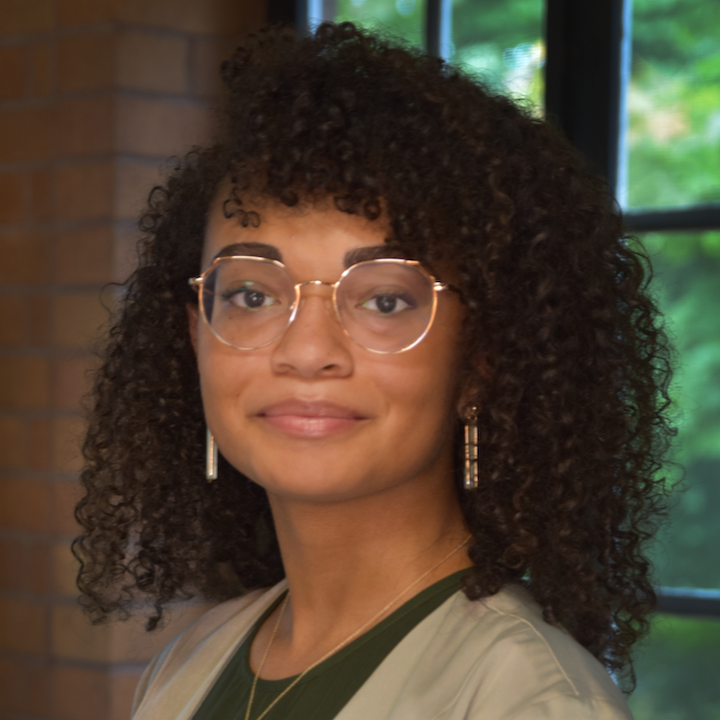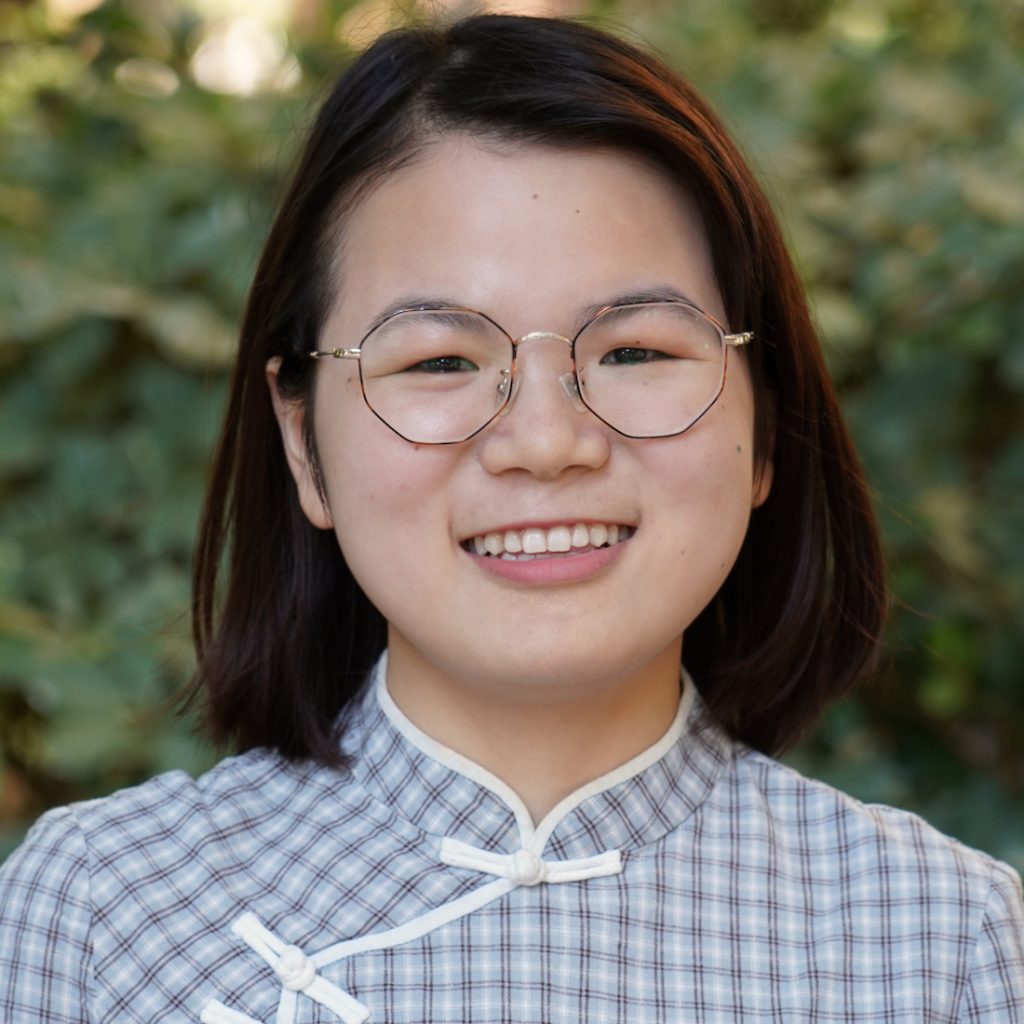Co-Directors

Panayiota (Pani) Kendeou
Distinguished McKnight University Professor and Guy Bond Chair in Reading, Department of Educational Psychology
Pani develops and examines the efficacy of educational technologies to facilitate learning and assessment of processes and outcomes at scale. She is also exploring new approaches to reducing the impact of misinformation and developing digital media literacy.

Caitlin Mills
Assistant Professor, Department of Educational Psychology
Caitlin’s research is at the intersection of cognitive psychology, computer science, and education. She is particularly interested in the antecedents and consequences of mind wandering, boredom, and engagement. Other interests include investigating affective states and task-unrelated thought in educational contexts, such as during complex learning from educational technologies.
Managing Director

Chris Steadman
PhD Student, Department of Educational Psychology, Psych Foundations
Chris (he/him) focuses on the interplay between learning, memory, and attention. His current interests involve the use of naturally occurring data to detect and understand behavior in online learning environments.
Core Faculty

Laura Allen
Assistant Professor and Bonnie Westby Huebner Chair, Department of Educational Psychology
Laura leverages theories and methodologies from cognitive science, learning science, linguistics, and education to examine the ways in which individuals learn and communicate through text and discourse. She is particularly interested in the use of computational linguistics approaches to glean theoretical insights into students’ learning processes as well as to develop and refine adaptive educational technologies.

David DeLiema
Assistant Professor,
Department of Educational Psychology
David studies how moments of failure, playful experiences, embodied cognition, and epistemic cognition shape learning in computer science, family play outdoors, video games, and other STEM domains. Through research-practice partnerships, his research examines cognitive and psychological processes within the context of social interaction, and often takes place within technology-rich settings.

Meixi
Assistant Professor,
Department of Organizational Leadership, Policy, and Development
Meixi (she/they) designs learning at the edges of school, families, and lands towards Indigenous futures across Thailand, México and most recently Mní Sota Makoce. Meixi studies how land-based stories, Indigenous mobilities, and original and digital technologies can support human learning, becoming, and collective wellbeing alongside the rest of the living world.

Xiaoran Sun
Assistant Professor, Department of Family Social Science
Xiaoran is interested in how the integration of different data types and methodological advances can further our understanding of family systems and adolescent development situated in larger social ecologies—including sociocultural and digital contexts. Specifically, she uses high-intensity smartphone data to study how digital technology may impact family dynamics and adolescent development, and leverages machine learning methods to make long-term predictions of adolescents’ future achievement outcomes based on their early experiences.

Keisha Varma
Associate Vice Provost, Office for Equity and Diversity
Associate Professor, Department of Educational Psychology
Keisha Varma’s current research projects focus on how to improve access to high quality STEM experiences and how to provide equitable STEM learning experiences. In her work, she is exploring the ways that innovative approaches within the field of learning analytics can advance our knowledge of disparities in STEM education experiences and improve the ways that we address persistent inequities.
Affiliate Faculty

Dongyeop Kang (DK)
Assistant Professor, Department of Computer Science and Engineering
DK develops human-centric language technologies. He also leads the Minnesota Natural Language Processing (NLP) group which develops interdisciplinary methods for NLP models based on theories in linguistics and cognitive/social sciences and builds interactive NLP systems for scientists, creative writers, and language learners.

Joseph A. Konstan
Distinguished McKnight Professor and Distinguished University Teaching Professor, Department of Computer Science and Engineering
Associate Dean for Research, College of Science and Engineering
Joseph’s research addresses human-computer interaction issues, including personalizing the learning experience, on-line community information systems, computer systems to improve health, and ethics of online research.

Andrew Zieffler
Teaching Associate Professor, Department of Educational Psychology
Andy designs curricular materials to engage teachers and students in the content of and data science. He also studies how students and teachers engage with these materials in order to better understand how to support the learning process.
Research Scientists

Craig G. Anderson
Department of Educational Psychology
Craig’s research focuses on the cognitive influences of video game play. Craig’s dissertation explored how players of a notoriously challenging video game, Cuphead, conceptualize and react to failure. Currently, he works on the Playful Problem Solving Project, investigating how young players solve problems in the puzzle game Baba is You.

Lingfei Luan
Lingfei Luan’s research interests lie in the perception and cognition of audio-visual information; her work has had a significant impact on film studies, audience behavior, and educational technology. She incorporates AI into her research, focusing on applications in medical care and using machine learning to predict viewer preferences. Her innovative methods have led to collaborations with industry leaders such as Hollywood cinematographer Thomas Ackerman. Recognized as one of the ‘Thirty Mentors of Women in STEM’ by the United Nations’ ITU in 2022.

Mengchen Su
Department of Curriculum and Instruction
Mengchen is interested in quantitative methods and applied machine learning for school improvement and whole child development in K-12 education, focusing on educational equity and diversity. Her current research evaluates the integration of school climate and social-emotional data into a K-12 dropout early warning system to support students’ perseverance and growth.

Aaron Wong
Department of Educational Psychology
Aaron’s research focuses on understanding how metacomprehension and mind wandering affect comprehension using a variety of techniques including eye movement monitoring, memory tests, and computational modeling. He is also interested in how metacognition affects learning in other areas besides comprehension, such as mathematics and skill
acquisition.
Postdoctoral Associates

Nabil Ch
Department of Educational Psychology
Nabil’s research focuses on human-computer interaction within educational technologies. He is interested in disengagement detection and knowledge tracing, especially in remote learning platforms.

Heeryung Choi
Department of Educational Psychology
Heeryung primarily applies mixed methods, machine learning, and experimental approaches to (1) investigate the impacts of interventions on learner-AI interactions (e.g., Jupyter Notebook extension, AI hint chatbot), and (2) reconstruct learning traces using multimodal data, (e.g., computational data, transcripts).
Graduate Students

Sam Bullard
PhD Student, Department of Educational Psychology, Psych Foundations
Research
Sam’s research interests are centered around middle school science education, culturally responsive teaching, learning by argumentation, and discourse-centric learning analytics.

Zack Carpenter
PhD Student, Department of Educational Psychology, Psych Foundations
Research
Zack’s research focuses on how moments of failure influence learning and how educators can leverage these moments to be productive for learning. To this end, his current work has focused on using multi-modal —including eye tracking, log, and talk-aloud—data to enrich our understanding of problem-solving processes in the challenging video game Baba is You.

Chen Chen
PhD Student, Department of Curriculum and Instruction, Learning Technologies
Research
Chen’s research interests include computer-assisted language learning (CALL) and Virtual Reality-assisted (language) learning.

Lauren Flynn
PhD Student, Department of Educational Psychology, Psych Foundations
Research
Lauren’s research primarily focuses on the dynamics of discourse. Specifically, she’s interested in the interacting components involved in dynamic systems over time such as the individual, social, and environmental factors that may impact peoples’ perception and/or comprehension of discourse (e.g., across conversations, books, student essays).

Ali Fulsher
PhD Student, Department of Educational Psychology, Psych Foundations
Research
Ali is interested in improving science literacy in higher education. Currently, her research examines the influence of sourcing instructions and in-text citations for multi-text comprehension.

Megan Goeke
PhD Student, Department of Educational Psychology, Psych Foundations
Research
Megan is interested in the intersection of informal education design and learners’ unfolding experiences. Her research primarily focuses on learning in museum spaces, particularly makerspaces and exhibitions with minimal or no educator facilitation.

Rina Miyata Harsch
PhD Student, Department of Educational Psychology, Psych Foundations
Research
Rina is interested in how students learn and revise beliefs, and in particular the roles of source and explanation in these processes.

Basel Hussein
PhD Student, Department of Curriculum and Instruction, Learning Technologies
Research
Basel’s research interests are in personalized learning and human-AI partnership. His current work focuses on using computational methods to investigate and support goal-based learning, problem-solving, and information-seeking behavior.

Victoria Johnson
PhD Student, Department of Educational Psychology, Psych Foundations
Research
Victoria is interested in investigating the contexts of knowledge revision and the reduction of misinformation. She also studies effective science communication, with a focus on how perceptions of source credibility drive views of science and scientific information.

Yewon Kang
PhD Student, Department of Educational Psychology, Psych Foundations
Research
Yewon is interested in the cognitive processes involved in learning and individual differences in learning and memory. Her research also examines how people interact with information on social media.

Jasmine Kim
PhD Student, Department of Educational Psychology, Psych Foundations
Research
Jasmine is interested in how people comprehend and learn from texts, individually and in groups. Her research also focuses on how texts can be used to facilitate knowledge revision and transfer of knowledge.

Vishal Kuvar
PhD Student, Department of Educational Psychology, Psych Foundations
Research
Vishal studies detection of disengagement during learning using modalities such as eye tracking and keystroke log data. He also studies thought dynamics.

Regina Lisinker
PhD Student, Department of Educational Psychology, Psych Foundations
Research
Regina’s research interests revolve around how students learn statistics and data science, with particular focus on communication within classrooms and communication with data (e.g., code review, pair programming, data visualization).

Püren Öncel
PhD Student, Department of Educational Psychology, Psych Foundations
Research
Püren’s research examines how individuals differ in their phenomenological experiences, particularly during reading. Specifically, her current work focuses on understanding how variations in language relate to fluctuations in visual imagery and inner-speech. Her research leverages methodological techniques from a broad range of disciplines, including cognitive psychology, linguistics, and computer science/natural language processing.

Cati Poulos
PhD Student, Department of Educational Psychology, Psych Foundations
Research
Cati’s research focuses on the phenomenology of spontaneous thoughts. She is particularly interested in identifying the phenomenological dimensions that may distinguish various forms of spontaneous thought, such as the extent of surprise and relationships to affective states.

Hong Shui
PhD Candidate, Department of Curriculum and Instruction, Learning Technologies
Research
Hong’s research interests lie in the online collaborative learning and the alignment between learning design and learning analytics. Her current research focuses on the design/development of scaffolding tools to facilitate social annotation activities.

Mya Urena
PhD Student, Department of Educational Psychology, Psych Foundations
Research
Mya is interested in anhedonic behavior and Reward Devaluation Theory. Her current research focuses on developing methods to evaluate reward devaluation in classroom settings.

Ting Xu
PhD Student, Department of Family Social Science
Research
Ting is interested in how technology impacts parent-child relationship and children’s development. Ting’s current research focuses on phone addiction of adolescents and how media affects adolescents during COVID-19.


